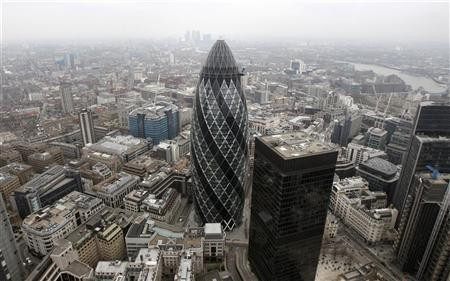PCBS Urges Jail Terms for Reckless Bankers

The Parliamentary Commission on Banking Standards has urged the British government to create new laws to imprison more "reckless" bankers, while also making it easier to claw back bonuses and pensions in order to clean up the industry.
In its 500-page report, the PCBS recommended the creation of a new criminal offence, "reckless misconduct in the management of a bank", which would carry a prison sentence in the most serious cases.
"Taxpayers and customers have lost out. The economy has suffered. The reputation of the financial sector has been gravely damaged. Trust in banking has fallen to a new low," said PCBS chairman Andrew Tyrie.
"Senior bankers who seriously damage their banks or put taxpayers' money at risk can expect to be fined, banned from the industry, or, in the worst cases, go to jail."
In terms of pay, the PCBS recommended that the banking industry adopt a new remuneration code. This would include a new power to cancel all bonuses and pension rights not yet paid, in the event that the banks need to be bailed out by the taxpayer.
It also asks that a new structure be installed, in order to better balance risk and reward with more pay deferred over longer periods of time.
The PCBS took evidence between September 21, 2012 and March 6, 2013 to deliver this report. During that time, it asked more than 9,000 questions and heard 161 hours of evidence from hundreds of witnesses, across 73 sessions.
It has also taken into account settled and ongoing regulatory and competition investigations.
Libor Fixing Scandal: The Latest
The PCBS was set up last year with a brief to deliver recommendations on banking standards and culture, after Barclays settled with US and UK authorities over its role in the Libor fixing scandal last June.
Following Barclays' settlement, UBS followed suit in December 2012. It agreed a record $1.5bn fine with US, UK and Swiss authorities for its role in manipulating a number of key benchmark interbank lending rates.
The Royal Bank of Scotland (RBS) was the third and most recent bank to settle with US and UK authorities related to civil charges related to the manipulation of Libor. A RBS subsidiary, RBS Securities Japan Limited, also pleaded guilty to one criminal charge of wire fraud.
In a Q&A session following the settlement, RBS Chairman Philip Hampton said "if people break the law they should face the full weight of the criminal justice system. We have already seen traders at other banks arrested over Libor manipulation and I expect we will see more."
"That is how it should be. If people don't end up in prison over this scandal I worry it will further perpetuate the sense that there is one rule for the financial system and another set of rules for the rest of society."
The authorities have also taken action at an individual level. On Tuesday, Britain's Serious Fraud Office (SFO) charged former Citi and UBS trader Thomas Hayes with conspiracy to defraud in connection with the criminal investigation into the manipulation of Libor.
Hayes, 33, was charged with eight counts of fraud in total by the SFO but he already faces criminal charges from the US Department of Justice since December last year.
On Tuesday, Tracey McDermott, director of enforcement at the Financial Conduct Authority (FCA), told delegates at a conference that "we are serious about holding individuals to account. Many question if we have the ability to see this through ... we mean business and we are able to follow through."
© Copyright IBTimes 2025. All rights reserved.






















